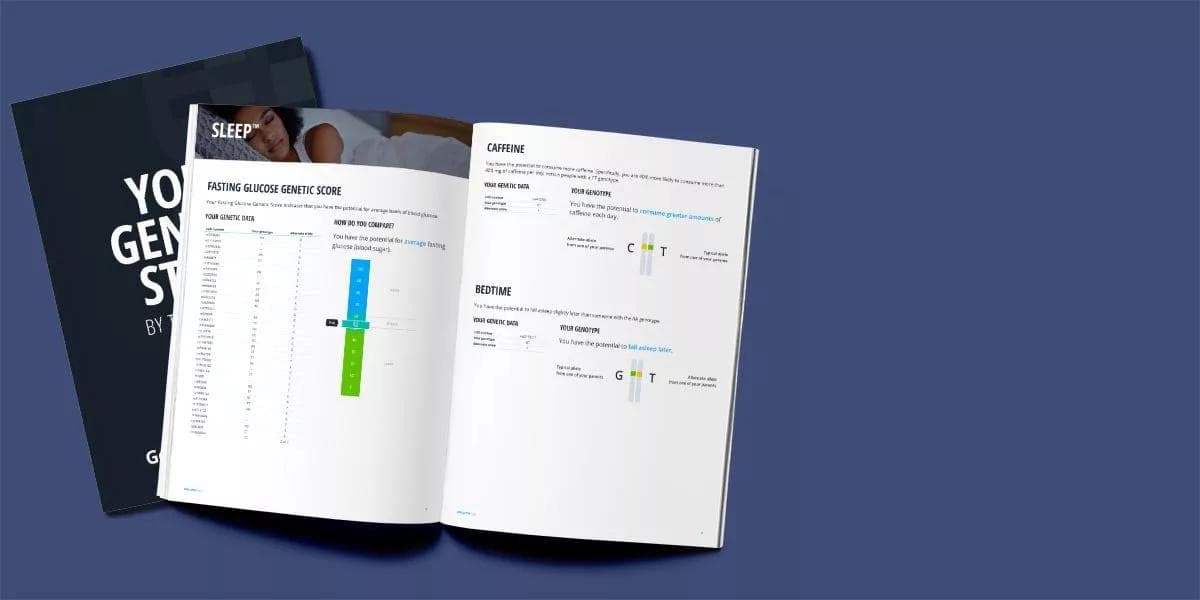How polygenic scores are unlocking genetic insights

With all your gear packed up, you head to the front door ready to start your day. As you move through the house, your eye catches sight of the umbrella in the corner and you think, “Should I bring that?” You glance out the window and look up to the sky. It’s gloomy… but maybe it won’t rain? Just then you notice the street is wet, and raindrops are delicately disturbing a puddle off in the distance. Sure enough, it’s already raining lightly. Probably best to grab the umbrella.
We encounter small situations like this everyday—moments where we use multiple points of information to make an observation. Here, we integrated information about the sky, the wetness of the street, and the splashing of water. All of this data combined to help us make the conclusion that its most likely raining. Geneticists do something very similar when interpreting DNA results, and they use what’s called a polygenic score to do it.
To understand what a polygenic score is and why it’s so important, we have to first talk about DNA and the impact that variants can have. The instructions coded by our DNA are remarkably similar among people, with nearly 99.9% of our DNA sequence shared among individuals. But that 0.1% difference is made up of variants—regions of the DNA where at least one base pair is different among people. Because our DNA carries instructions for how to build a human, changes to its sequence could potentially influence human traits, like hair color or a predisposition for certain diseases.
Genetic studies have shown us that this does happen, and sometimes it’s as simple as one trait being traced back to a single variant. Take a person’s ability to metabolize caffeine, for example. People who inherit one version of the CYP1A2 variant are significantly more likely to be “fast metabolizers,” meaning caffeine will have less of an effect on them. In these kinds of cases, detection of the single variant can be quite helpful when determining whether or not someone is likely to develop a trait. Returning to the rain analogy, detecting these types of variants would be equivalent to seeing the raindrops splashing in a puddle—it’s presence lets you say, with a high degree of certainty, that it’s raining out.
But it isn’t always the case that a single variant in the DNA is responsible. In fact, in the majority of cases, it’s actually numerous variants that combine to influence our traits. In order to more accurately estimate someone’s odds of developing such traits, geneticists have to be able to consider the impact of all of the changes in their DNA. That’s when polygenic scores come into play.

Often, more than one variant contributes to a trait
Polygenic scores integrate information from multiple different variants to determine if someone’s DNA might be increasing their odds of having a trait. Some of these variants may have larger effects than others, but individually, each one’s impact can be rather small. When considered together, these variants can have a meaningful influence on a particular trait.
Available in the Helix Store, GoalGetter by InsideTracker uses polygenic scores to offer a variety of insights, including genetic predisposition to higher- or lower-than-average calcium levels. Calcium has an important part in human physiology—it helps with muscle function and bone strength, among other important roles. We absorb calcium from our diet, and can store it within our bones. Variants in your DNA can have a small influence over this process, which GoalGetter leverages to help tell your genetic story.
Products like GoalGetter do not provide a diagnosis of medically high or low nutrient levels. In the case of calcium, for example, GoalGetter is helping you understand how your genetics may influence where you sit within the healthy spectrum. GoalGetter also uses polygenic scores to analyze many other traits, including your fasting blood glucose, blood pressure, and whether you’re likely to be an endurance or power oriented athlete. By using polygenic scores, GoalGetter is able to provide insights about complex traits that involve many different DNA variants.
There are many factors that contribute to who we are. It’s not just about genetics—our environment, the personal choices we make, and our behavior can all influence our traits. DNA testing helps us learn more about ourselves, and with polygenic scores, we can now integrate multiple data points to assess complex traits.